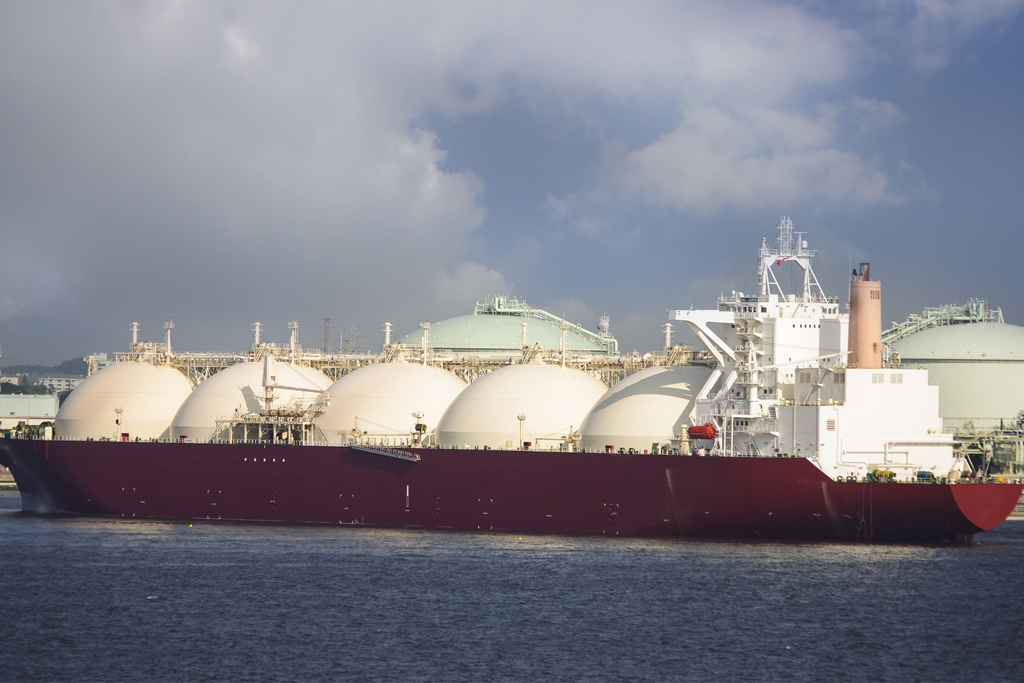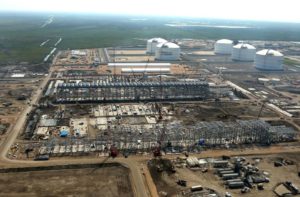
In the past several months, oil prices have fallen considerably. Brent crude oil is down 32% from $113 to $76 and WTI is down 29% from $107 to $75. While down, natural gas has not seen as large a fall. Henry Hub Natural Gas is down 9% from $4.70 to $4.20. The recent decline in oil prices could impact the LNG industry in three ways.
First, buyers are finding new encouragement in continuing to explore lower prices first initiated by the new wave of LNG supply coming up in Australia and North America. Asia consumes more than 70% of the LNG produced in the world today and leading buyers such as India, Japan, and South Korea have considered teaming up to increase their bargaining power. The initial fillip to this effort came from the indexation of some North American LNG export contracts to Henry Hub over the past two years. Lower oil prices are further strengthening such intentions and would be another step toward convergence in global gas pricing instead of indexation with oil.
Second, declining oil prices could impact some of the upcoming LNG capacity. Many Australian projects, already stressed with delays and cost overruns, could be at risk as most of their pricing contracts are indexed to the price of oil. Although North American LNG export projects indexed to Henry Hub are better insulated, relatively speaking, their overall attractiveness could also suffer impacting new, if not existing projects.

Cheniere’s Sabine Pass liquefaction facility, which indexed off-take to Henry Hub, under construction. Courtesy of LNG World News
Finally, and more importantly for the future of the LNG industry, any volatility such as this decline in oil prices is an opportunity to stoke and revisit the price indexation debate. Historically, the price of LNG has been indexed to the price of oil at a rate of 12% to 15% of the cost of a barrel of oil per mmbtu of natural gas. With the growth in LNG demand — particularly in Asia where many countries are price sensitive – and the new wave of LNG supply – especially in North America where the shale gas boom has considerably reduced natural gas prices – there has been vigorous debate on the longevity of indexing LNG to oil prices. North American LNG export projects indexing their off-take to Henry Hub with a fee for liquefaction has been touted as evidence of cracks in the oil-based indexation model of LNG. While there is some truth to that, most LNG contracts are in place for at least 20 years and it may be too early to announce the decline of oil-based indexation. Even so, one should fully discount some movement towards new models that reflect an element of convergence in gas pricing on a global basis.
In the face of volatile energy prices buyers and sellers should both focus on diversification in order to minimize their risk. Buyers of LNG should diversify who they are purchasing LNG from not only by company, but also by the region in which the LNG is produced. Sellers of LNG could diversify their customer base but, more importantly, focus on reducing and optimizing the cost structure of their projects. Commodity markets are volatile in nature and diversification and cost effectiveness are the best bets in navigating them.
-Tyler Wilson and Uday Turaga



















